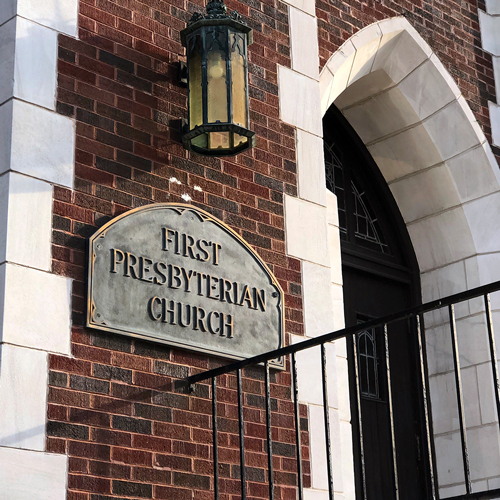Lent - Day 31
Posted on: March 31, 2020
by: Gerrit Dawson, Senior Pastor
by: Gerrit Dawson, Senior Pastor
Day 31 Tuesday
JESUS ON THE CROSS
That which we have seen and heard we proclaim also to you, so that you too may have fellowship with us; and indeed our fellowship is with the Father and with his Son Jesus Christ (1 John 1: 3).
FOLLOWING THE SCRIPT
Luke 23: 32-34
Two others, who were criminals, were led away to be put to death with him. And when they came to the place that is called The Skull, there they crucified him, and the criminals, one on his right and one on his left. And Jesus said, “Father, forgive them, for they know not what they do.”
John 19: 25-27
. . . but standing by the cross of Jesus were his mother and his mother’s sister, Mary the wife of Clopas, and Mary Magdalene. When Jesus saw his mother and the disciple whom he loved standing nearby, he said to his mother, “Woman, behold, your son!” Then he said to the disciple, “Behold, your mother!” And from that hour the disciple took her to his own home.
CAST NOTES
Throughout the Gospels, Jesus always seemed to have such a complete sense of himself. He knew who he was. He knew his mission. He knew the plan of his Father and his role in it.
Nevertheless, it stuns me to see how self-possessed Jesus was during his torture and crucifixion. Even a little pain makes me withdraw into myself. I fear. I doubt. I don’t care about others. But Jesus, with nails in his hands and feet, thorns crushing his head, his open back scraping the rough wood could still focus his mind. He could still notice others. As helpless as a man could be, Jesus could still bless and redeem others.
In the first of his seven sayings from the cross, Jesus said, “Father, forgive them, because they know not what they do.” That has always seemed to me a generous assessment of us who crucified Christ! Would it have changed anything in my heart if I had known what I was doing? I fear I would reject him anyway.
Yet Jesus, at precisely the time when we might expect him to despair of the humanity he came to save, recalled a deeper purpose. We were made for God. He is our greatest, indeed, our only good. And as C.S. Lewis said, “I believe . . . that the kernel of what [a person] was really seeking, even in his most depraved wishes, will be there, waiting for him in the ‘High Countries.’” Human beings want, require, crave God, even if awareness has been lost and God-hatred has ruled us. And Jesus came to answer that need. To literally “bleed out” the poison of sin in us to give us the new life of his Spirit by his forgiveness.
This love is not only grand in scope, but intimately specific. In a touching scene, Jesus in the agony of the cross nevertheless notices his mother Mary and his disciple John. He gives them to each other to care for each other after his departure. From the cross, he creates bonds, family, enduring care.
PRAYING IN CHARACTER
Lord Jesus, your prayer staggers me:
Father, forgive them.
I don’t know how to pray that
When I am wounded, deceived, left, forgotten or overlooked.
Yet you have placed words on lips:
Forgive us our debts as we forgive our debtors.
You are serious about my forgiving!
Lord Jesus, your thoughtfulness staggers me:
John, behold your mother.
Mary, behold your son.
I live so compartmentalized,
Isolated by busy-ness and technology.
Yet you have placed a rule in our hearts:
Love one another as I have loved you.
You are serious about my connecting!
Lord Jesus, forgive me.
Lord Jesus, give me to others.
Lord Jesus, lead me to forgive.
Lord Jesus, teach me to love.
These are written so that you may believe that Jesus is the Christ, the Son of God, and that by believing you may have life in his name (John 20: 31).
ENCORE
Jesus came to love us. He had a legitimate claim on us. He is our creator and he called us to himself. But we fled him. He could not force us and have us be free. On the cross he was suspended in agony by his love. Rejected by us, he nevertheless could not let us go. So he endured in love until it killed him.
Those who love inevitably find that there are hours when we can go neither forward nor backward, but must wait helplessly for the other to determine our fate.
From his position of hanging in the excruciating conflict between his love for us and our rejection of him, Jesus prayed, “Father forgive them, for they know not what they do” (Luke 23: 34). That Jesus prayed for our forgiveness does not surprise me. He came to give his life for us, to create a new and living way to God. But that second line worries me. We didn’t know what we were doing? Is the basis for our forgiveness the fact that we were ignorant of who we put to death?
I believe that even knowing what we did, we would have done it anyway. To me, we knew enough. We human beings knew that here was the light of the world and we wanted to be left alone in the darkness. We wanted to snuff out that light. And Jesus surely knew that. Perhaps he means that we neither know the true depth of our sin nor the true extent of God’s love. However much we might know of who Christ is, our capacity to reject him in sin would be there. But never will we fully understand the depth of his love for us. Knowing the lostness in us more than we will ever grasp, still God did not spare his own Son but freely gave him up for us. There is in Christ on the cross revealed a love of God beyond measurement of height and depth (Gerrit Dawson, I Am With You Always, 2000, pp. 120-123).
Posted in:




 Close
Close











